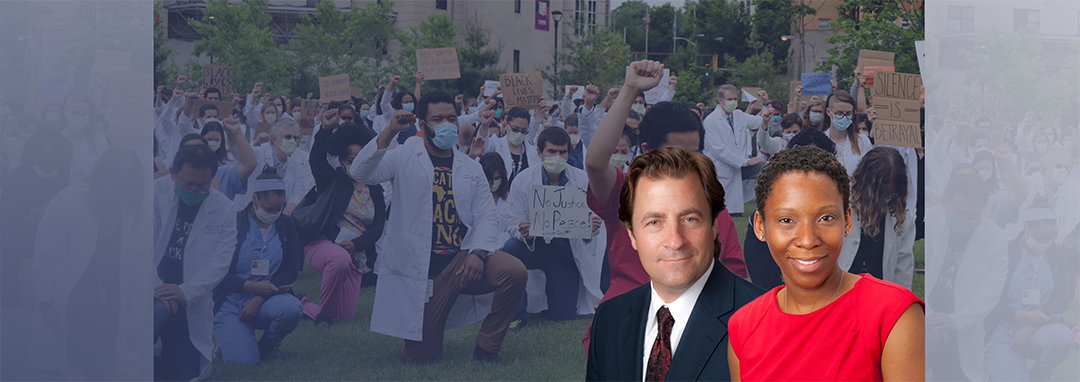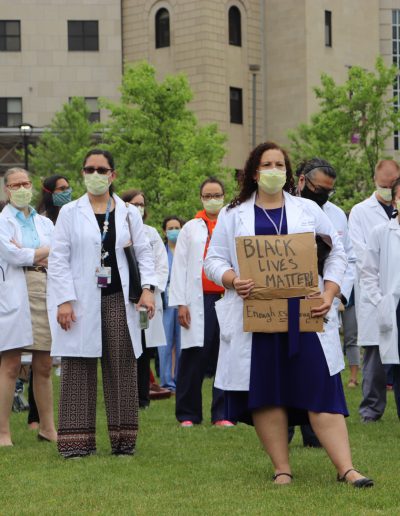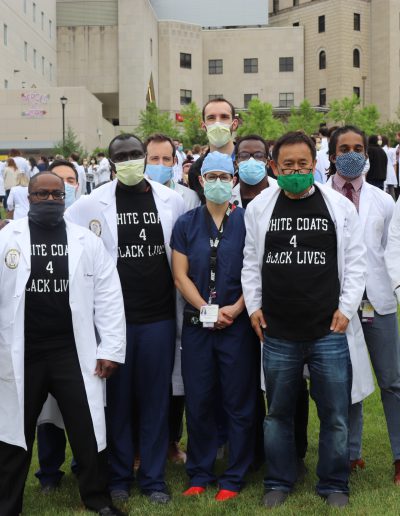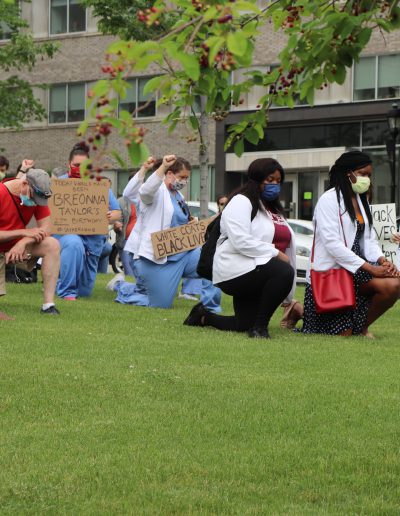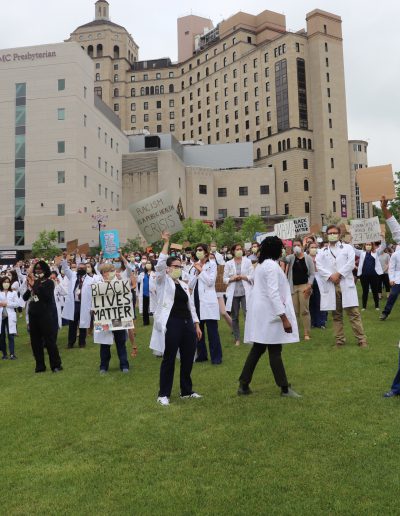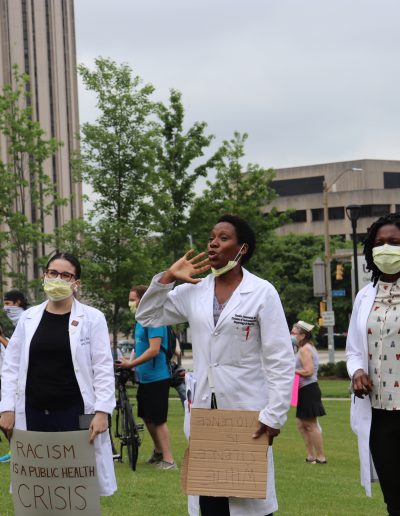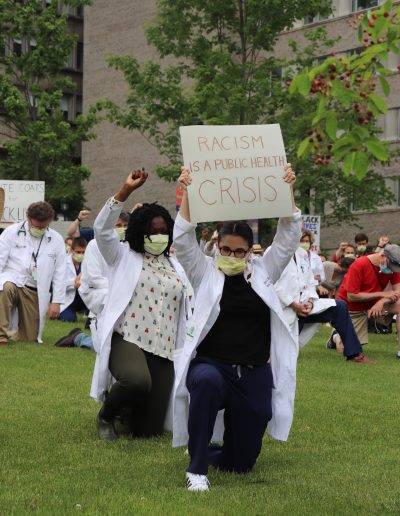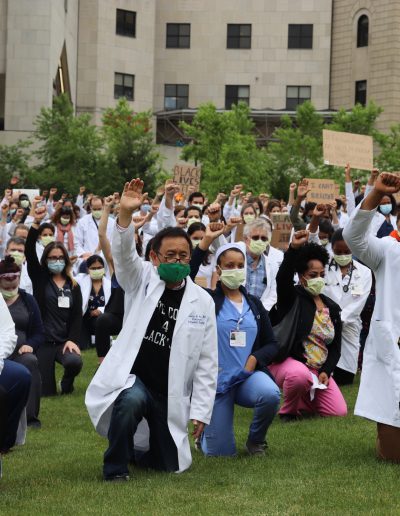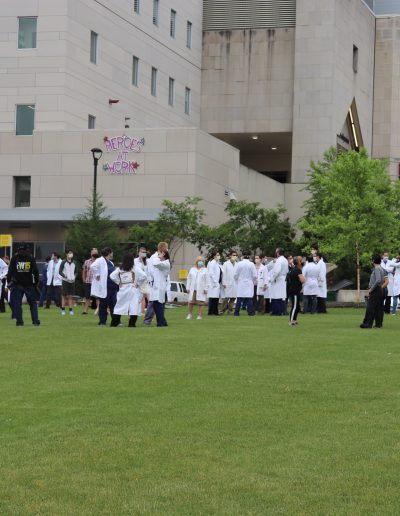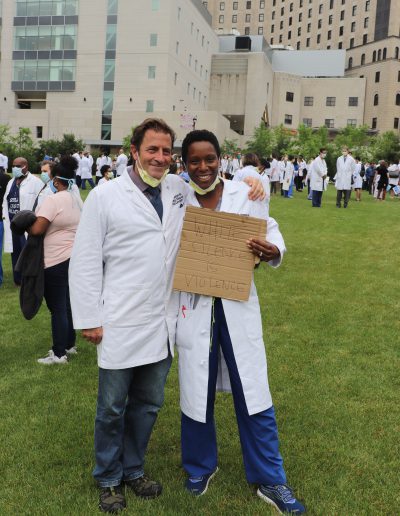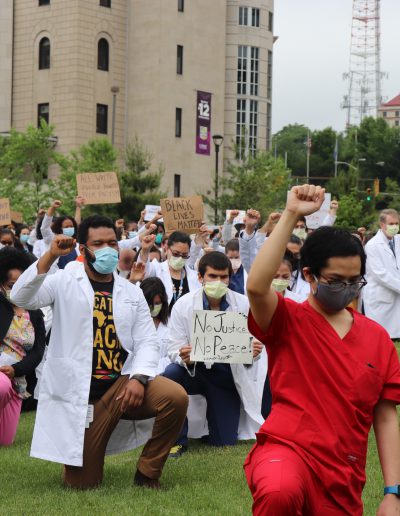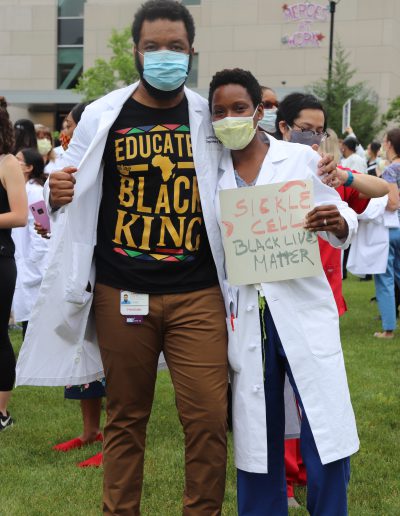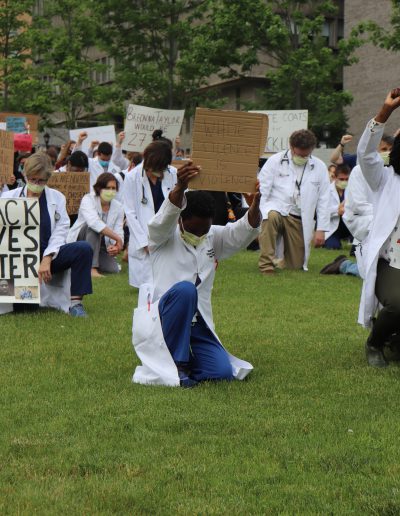This has not been an easy year. We find ourselves in one of the most disruptive weeks in one of the most disruptive years. The COVID-19 pandemic and the ensuing economic fall-out are driving fear, anxiety, and uncertainty. Layered on this challenge, political culture wars further drive divisiveness and disharmony, even entering the science domains of infection prevention and masking, which are so vital to help control the COVID-19 pandemic. As a nation, we have long struggled with racism, bias, economic inequality, and unremitting wars on crime and drugs that have in many ways militarized our policing. These events all contribute to the terrible events we have all witnessed this month of racial violence and injustice. People of color are suffering from the pain associated with the events of this week but also the incidents of each day. As friends and allies, we hope to stand in the gap and be a voice for change and continue to think about concrete ways to create this change.
All of us, as leaders in Academic Medical Centers – places of healing, of ideals, of innovation, of diversity, melting pots of nationalities, ethnicities, the rich and the poor, the healthy and the hurting – we have a unique role in this process. We embrace the strengths of humanity – social justice, innovation, diversity, and generosity, and we reinforce and defend these values. Even as the outside world boils, we hope to serve as a beacon for—and champions of—human dignity. As physicians, we spend our time listening to the intimate stories of others to help in the process of healing, and now it is equally important to listen to our neighbors, colleagues, coworkers and friends to understand our roles in change.
(continued below)
The physicians, scientists and staff of the Department of Medicine must do all we can to heal, to soothe, to respect, to defend, and to lead. Every day we must take that extra effort to reach out and communicate our support and respect for each other, across racial, cultural and political lines.
From a departmental standpoint, we remain committed to participation in the BRIM training program on unconscious bias (which was planned for this summer but delayed owing to COVID-19), efforts to stem discrimination and harassment lead by our SHAEC UP Committee, and major investments in the new programs created by our Vice Chair for Diversity and Inclusion. We continue to promote recruitment, retention, and career development of diverse residents, fellows, and faculty. We are proud that almost 25% of our in-patients are supported by medical assistance, and that our UPMC health plan is the largest provider of Affordable Care Act coverage (Obamacare) in our region. 27.3% of our patients admitted to UPMC hospitals with COVID-19 were African American, and we are proud of the highest quality care we have provided. We lead by example with our compassionate and respectful care for our most vulnerable patients.
“The arc of the moral universe is long, but it bends toward justice,” Dr. Martin Luther King. While it is so hard to see the bending just now, bend it will—all of your central roles in leadership are part of this force.
Please reach out to either of us at any time for feedback or support. We invite you to share reflections on the challenges we are all facing by linking to this week’s Grand Rounds: https://bcove.video/2yX47sh
Mark Gladwin and Naudia Jonassaint
Mark T. Gladwin, MD
Jack D. Myers Distinguished Professor and Chair
Chairman of the Department of Medicine
UPMC and the University of Pittsburgh School of Medicine
Naudia Jonassaint, MD, MHS, MBA
Vice Chair, Diversity and Inclusion
Medical Director, Hepatology
Assistant Professor, Department of Medicine and Surgery


